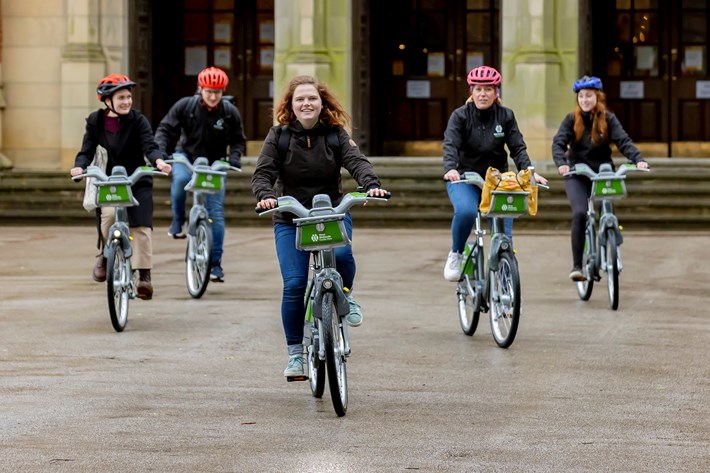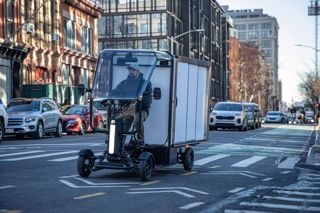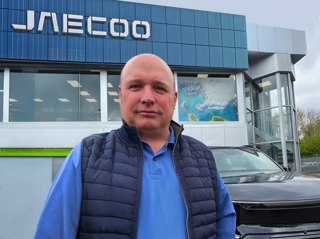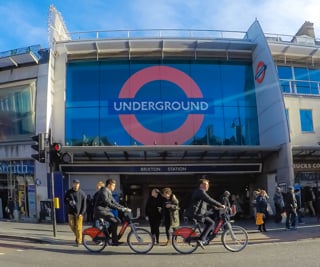The West Midlands is becoming a testbed for future mobility solutions as it seeks to implement its own strategy for reducing congestion and emissions.
Transport for West Midlands (TfWM), the organisation that is responsible for transport in the region, has teamed up with the University of Warwick for a two-year trial aimed at persuading motorists to switch their cars for more environmentally friendly modes of transport.
One of the initiatives is a mobility hub which is designed to bring together eco-friendly travel options such as e-scooters, pedal bikes and electric vehicle charging points to neighbourhoods, and local centres.
The trial is part of the £22 million Future Transport Zone programme.
Throughout the two-year trial, participants are encouraged to change their transport choices and incentives offered for people who choose greener travel as part of the “choose your way Warwick” campaign.
Speaking to Fleet 200 delegates, Chris Lane, head of transport innovation at TfWM, explained that single occupancy private car journeys make up a large proportion of all travel in the region, despite it having the largest urban bus network in Europe.
Key to the strategy is moving more people away from single-occupancy car and van use by creating an ecosystem that offers cheaper and easier alternatives.
The West Midlands is becoming a testbed for future mobility solutions as it seeks to implement its own strategy for reducing congestion and emissions.
Transport for West Midlands (TfWM), the organisation that is responsible for transport in the region, has teamed up with the University of Warwick for a two-year trial aimed at persuading motorists to switch their cars for more environmentally friendly modes of transport.
One of the initiatives is a mobility hub which is designed to bring together eco-friendly travel options such as e-scooters, pedal bikes and electric vehicle charging points to neighbourhoods, and local centres.
The trial is part of the £22 million Future Transport Zone programme.
Throughout the two-year trial, participants are encouraged to change their transport choices and incentives offered for people who choose greener travel as part of the “choose your way Warwick” campaign.
Speaking to Fleet 200 delegates, Chris Lane, head of transport innovation at TfWM, explained that single occupancy private car journeys make up a large proportion of all travel in the region, despite it having the largest urban bus network in Europe.
Key to the strategy is moving more people away from single-occupancy car and van use by creating an ecosystem that offers cheaper and easier alternatives.
“Some people will use the car no matter what,” Lane said.
Others are more responsive to change, however, and TfWM’s solution to encourage more to make the switch is centred around Mobility as a Service (MaaS) delivered via a mobile app.
He likened it to other app-based services, like on demand video and music providers, which deliver convenience and transparency to users.
It features a journey planner, which can recommend multiple travel modes, such as buses, taxis and car clubs. The app will also recommend active travel, where possible, and can handle the planning, booking and payment required for any of the recommended options.
Login to continue reading.
This article is premium content. To view, please register for free or sign in to read it.


















Login to comment
Comments
No comments have been made yet.